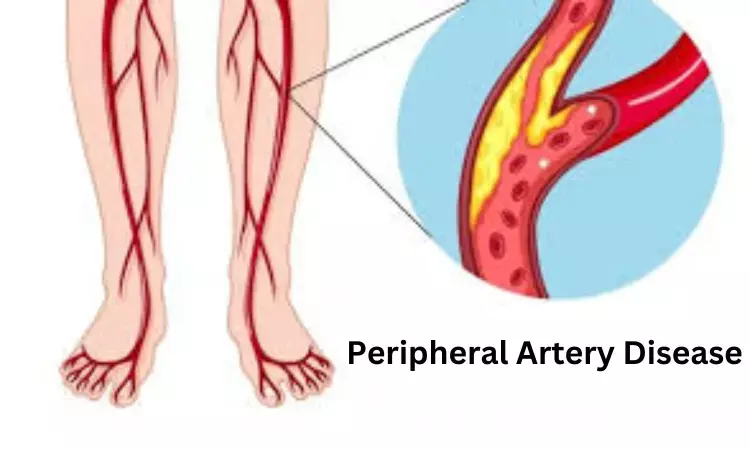- Home
- Medical news & Guidelines
- Anesthesiology
- Cardiology and CTVS
- Critical Care
- Dentistry
- Dermatology
- Diabetes and Endocrinology
- ENT
- Gastroenterology
- Medicine
- Nephrology
- Neurology
- Obstretics-Gynaecology
- Oncology
- Ophthalmology
- Orthopaedics
- Pediatrics-Neonatology
- Psychiatry
- Pulmonology
- Radiology
- Surgery
- Urology
- Laboratory Medicine
- Diet
- Nursing
- Paramedical
- Physiotherapy
- Health news
- Fact Check
- Bone Health Fact Check
- Brain Health Fact Check
- Cancer Related Fact Check
- Child Care Fact Check
- Dental and oral health fact check
- Diabetes and metabolic health fact check
- Diet and Nutrition Fact Check
- Eye and ENT Care Fact Check
- Fitness fact check
- Gut health fact check
- Heart health fact check
- Kidney health fact check
- Medical education fact check
- Men's health fact check
- Respiratory fact check
- Skin and hair care fact check
- Vaccine and Immunization fact check
- Women's health fact check
- AYUSH
- State News
- Andaman and Nicobar Islands
- Andhra Pradesh
- Arunachal Pradesh
- Assam
- Bihar
- Chandigarh
- Chattisgarh
- Dadra and Nagar Haveli
- Daman and Diu
- Delhi
- Goa
- Gujarat
- Haryana
- Himachal Pradesh
- Jammu & Kashmir
- Jharkhand
- Karnataka
- Kerala
- Ladakh
- Lakshadweep
- Madhya Pradesh
- Maharashtra
- Manipur
- Meghalaya
- Mizoram
- Nagaland
- Odisha
- Puducherry
- Punjab
- Rajasthan
- Sikkim
- Tamil Nadu
- Telangana
- Tripura
- Uttar Pradesh
- Uttrakhand
- West Bengal
- Medical Education
- Industry
Home-based walking exercise first-line therapy for walking limitations in PAD: JAMA

In a groundbreaking shift for individuals battling peripheral artery disease (PAD), a new study is challenging the traditional approach to exercise therapy. The Center for Medicare and Medicaid Services has long supported supervised treadmill exercises for PAD patients, but this research suggests that home-based walking exercises might be the game-changer these patients need.
The study results were published in the journal JAMA Network Open: Cardiology.
Peripheral artery disease (PAD) is a condition that affects millions worldwide, causing pain and limited mobility due to narrowed arteries in the legs. Exercise therapy has been a key component of PAD treatment, but the majority of patients have been hesitant to engage in supervised treadmill programs. This hesitancy has prompted researchers to investigate the effectiveness of home-based walking exercises as an alternative to treadmill exercise in people with PAD.
The researchers combined data from five randomized clinical trials conducted between 2009 and 2022, offering a comprehensive analysis of the potential benefits of this alternative approach. PAD Patients were identified through a measure called the Ankle Brachial Index (ABI), which assesses the severity of PAD. Three of these trials compared supervised treadmill exercises to non-exercise control groups, involving a total of 370 participants. The remaining two trials pitted effective home-based walking exercise interventions against non-exercise control groups, encompassing 349 participants. Combining the individual participant-level data from these trials allowed for a more robust and in-depth analysis.
The study assessed changes in various measures, including the 6-minute walk (6MW) distance, maximum treadmill walking distance, and the Walking Impairment Questionnaire, all tracked over a 6-month follow-up period. Supervised treadmill exercises involved structured sessions led by an exercise physiologist, occurring three times a week for up to 50 minutes per session. In contrast, home-based walking exercises took a behavioral approach, with coaches guiding participants in walking for exercise in and around their homes, typically recommended for up to 5 days a week, with each session lasting 50 minutes.
Key findings:
- Supervised treadmill exercises significantly improved the 6MW distance by 32.9 meters compared to non-exercise control groups.
- Home-based walking exercises, on the other hand, outperformed even supervised treadmill exercises, enhancing the 6MW distance by a remarkable 50.7 meters.
- Most notably, home-based walking exercises showed significantly greater improvement in 6MW distance when compared to supervised treadmill exercises, with a notable between-group difference of 23.8 meters.
- Home-based walking exercises did lead to a somewhat reduced improvement in maximum treadmill walking distance compared to supervised exercises.
Thus, the present study shows that home-based walking exercises are the new frontrunner for PAD treatment, particularly when it comes to improving 6MW distance. This revelation has the potential to revolutionize the way PAD patients approach their exercise therapy, offering a more accessible and equally effective alternative to supervised treadmill exercises.
Further reading: Thangada ND, Zhang D, Tian L, et al. Home-Based Walking Exercise and Supervised Treadmill Exercise in Patients With Peripheral Artery Disease: An Individual Participant Data Meta-Analysis. JAMA Netw Open. 2023;6(9):e2334590. doi: 10.1001/jamanetworkopen.2023.34590
BDS, MDS
Dr.Niharika Harsha B (BDS,MDS) completed her BDS from Govt Dental College, Hyderabad and MDS from Dr.NTR University of health sciences(Now Kaloji Rao University). She has 4 years of private dental practice and worked for 2 years as Consultant Oral Radiologist at a Dental Imaging Centre in Hyderabad. She worked as Research Assistant and scientific writer in the development of Oral Anti cancer screening device with her seniors. She has a deep intriguing wish in writing highly engaging, captivating and informative medical content for a wider audience. She can be contacted at editorial@medicaldialogues.in.
Dr Kamal Kant Kohli-MBBS, DTCD- a chest specialist with more than 30 years of practice and a flair for writing clinical articles, Dr Kamal Kant Kohli joined Medical Dialogues as a Chief Editor of Medical News. Besides writing articles, as an editor, he proofreads and verifies all the medical content published on Medical Dialogues including those coming from journals, studies,medical conferences,guidelines etc. Email: drkohli@medicaldialogues.in. Contact no. 011-43720751



